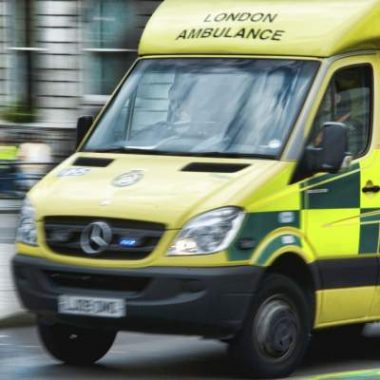NHS England announces overhaul to ambulance response targets

All 999 calls will be subject to target times following an overhaul of the ambulance response system announced today.
NHS England said that under the plans, the severity of the patient’s condition will more effectively determine the response, with call handlers given ‘slightly more time’ to decide what is most appropriate.
There will be a new target for ambulances to reach the most seriously ill patients in an average time of seven minutes, with the ‘clock’ only stopping when the most appropriate response arrives on scene, rather than the first.
There will also be mandatory response time targets for all 999 calls, abolishing the ‘green’ rating they can currently receive which can place them in long queues.
NHS England will also begin tracking the times from 999 calls to hospital treatment for heart attacks and strokes, ‘where a prompt and appropriate response is particularly critical’.
The measure will see new targets for:
- 90% of eligible heart attack patients to receive definitive treatment (balloon inflation during angioplasty at a specialist heart attack centre) within 150 minutes; and
- 90% of stroke patients to receive appropriate management (thrombolysis for those who require it, and first CT scan for all other stroke patients) within 180 minutes of making a 999 call.
NHS England said the new targets should be ‘achieved in the coming years’, although data collection will ‘begin immediately’.
Trials of the planned changes have been subject to a study carried out by Sheffield University, which deemed them ‘safe’, NHS England added.
Crucially, the new system does not downgrade calls where patients are in the care of a GP, as was piloted last year.
The trial in Yorkshire, which was criticised by GPs, allowed waits of up to 40 minutes for a wide range of serious conditions, including heart attacks, strokes, sepsis and meningitis, when a patient was already with a health professional.
An NHS England spokesperson told Pulse that the new programme instead ‘reduces delay in getting to such patients’.
NHS England national medical director Sir Bruce Keogh said: ‘These changes, together with ambitious new clinical standards for heart attack and stroke patients, will end the culture of “hitting the target but missing the point”. They will refocus the service on what actually counts: outcomes for patients.’
Royal College of Emergency Medicine president Taj Hassan welcomed the plans, adding: ‘Response times will be more appropriate according to the patient’s need, and trials have suggested that ambulances could arrive up to three minutes quicker to the most serious incidents – time which can make the difference between life and death.’
The news comes as GPs warned last year that patients were dying while waiting for ambulances, with GPs taking the decision to drive patients to the hospital themselves on a number of occasions.
Pulse October survey
Take our July 2025 survey to potentially win £1.000 worth of tokens











